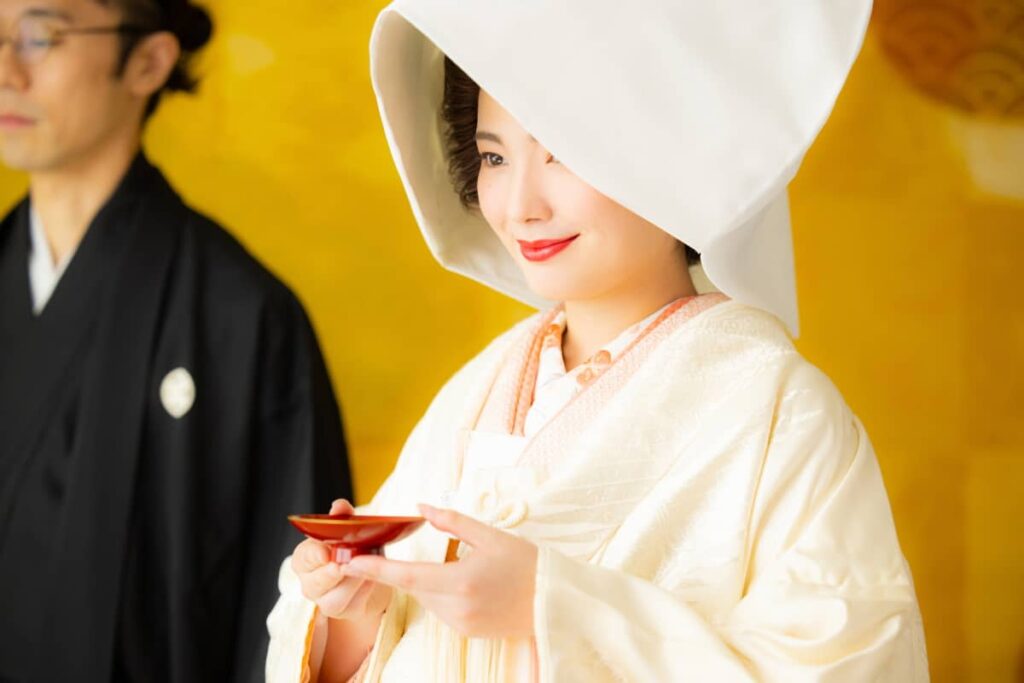[ad_1]
The discussion over separate spousal surnames tends to be highly emotional in Japan. Some claim Japan needs to protect the traditional form of family based on the current family registration system. But the heated debate overlooks the impact the current law has on women in Japan…such as myself.
The history of surnames in Japan
First and foremost, ordinary citizens such as farmers and townspeople didn’t even have surnames prior to the Meiji Era (1868–1912). Even after the Meiji government widely permitted the use of surnames, individuals retained their surnames after marriage because the government ordered married women to keep their maiden names.
It was in 1898 when the government established the new Civil Code that forced married couples to use shared surnames, which was the husbands’ surname except when a man married a female head of a family[1]. Since then, the concept of 家 (ie, home) became important for average citizens to manage their family trees.
Fast forward to today. Under the current surname system, 96% of married couples choose their husbands’ surnames, although men can also change theirs to women’s family names[2].
Confusing polls by the Cabinet Office
Even though the Japanese government has been facing younger generations’ demand to retain their surnames, the polls show opaque results. When the Cabinet Office announced the latest poll in March 2022, only 29% thought that Japan needed a selective dual surname system, which was the lowest ever since the Cabinet Office started the research in 1996[3]. However, they also significantly changed the questions from the last poll in 2017.
The largest number of respondents, 42% agreed with the creation of a new law that allows citizens to use maiden names while keeping the current one-surname system, which didn’t exist in the last poll. Seiko Noda, then minister in charge of Women’s Empowerment, criticized including a nonexistent law as an option without explanation.
Too little discussion at work
The more realistic poll by Asahi reflected a sharp increase in the support of different surnames from 35.5% in 2012 to 69% in 2020[4]. The Japanese Trade Union Confederation also reported that 64% answered they don’t mind if other married couples have either the same or different surnames[5].
However, there’s a noticeable gap in enthusiasm between men and women. In this same research, 70% of women backed dual surnames while 58% of men answered the same. For many Japanese men, a dual surname system isn’t an imminent issue to discuss unless their girlfriends bring up the topic. That explains why 46% of office workers are not sure whether their employers allow them to use their maiden names at work. 42% of respondents answered they can retain their surnames after marriage at their workplaces[5].
Many Japanese people think that couples truly in love must want a single surname, or if women don’t want to change their surnames, they can be common-law pairs. However, one in three marriages ends in divorce. So many women need to change their surnames more than once in their lifetime[6]. Most men never face this potential burden. With the current rise of middle-aged divorce, the costs of marriage and divorce keep haunting women throughout their lives.

What happens if a woman gets divorced in Japan?

Getting divorced is still stigmatized for both men and women in Japan. But women face a much more serious psychological toll.
Let’s say you’re a woman who works for a conservative Japanese company and you wed a Japanese man. Your employer doesn’t have clear rules about the use of maiden names, and HR says women change their surnames at the office.
You start using the new family name. Now, you need to change everything: Passport, driver’s license, bank accounts, credit cards, as well as email address and business cards at work.
Two months later, your husband says he found out he wasn’t cut out for marriage and wants a divorce. You need to revert everything to your maiden name again. You even need to change what people call you at work.
Does this sound too extreme? It happened to a friend of mine. She changed her surname only for the two-month marriage, bearing the brunt of people’s gossip at work.
Here’s an even more complicated story of surnames at work: It’s my story of two marriages.
The Japanese way of disciplining daughters
My father bought me a set of two hanko stamps when I turned 20. One was the kanji character of my given name, and the other was my maiden name.
“You’ll eventually get married and your surname will change, but you can keep using this first name hanko,” my father explained with a grin. I was confused. Suddenly, I felt like a subpar baseball player whose contract could be terminated without a promising offer from other teams.
Yet by my late twenties, my father proved prophetic when I married and changed my surname. My maiden name hanko abruptly became useless.
It was both an extremely happy and frustrating experience. As a naive, carefree bride, I followed the old customs. I went so far as to change my permanent domicile, from Niigata—where my soul belongs—to the suburb in the Kanto region where my then-husband had lived with his parents prior to us moving in together.
Marrying into a family
Even though it was technically possible to choose somewhere else as our new permanent domicile, I didn’t fight for it. My parents had raised me to follow my husband’s family traditions. It is common practice in Japan, and women typically choose their husband’s home address, despite often never living there before or even after the marriage.
You can see this attitude captured in the kanji 嫁. The combination of the images of woman and home makes the character yome, which means wife and daughter-in-law. (The antonym for 嫁 is 婿 (muko, son-in-law), but we hear this word far less often.)
When I married, no female colleagues were using their maiden names at work. I didn’t bother to check with HR if it was even possible. Thanks to all the girls’ comics and TV dramas, I thought that I should consider myself privileged to use my loved one’s family name, despite the huge paperwork-related headache.
How I ended up changing my surname three times

A couple of years later, I changed my job and moved to an American company. I got new email addresses and business cards with my husband’s name. After all, I wasn’t expecting my marriage would crash.
Then, it happened—divorce. To make matters worse, due to my common first name, neither my ex’s surname nor my maiden name could provide me with a unique full name.
To further complicate the issue, I knew I wasn’t totally done with marriage. I was still open to the idea of getting married and motherhood, just with someone else.
To minimize both the number of procedures and miserable gossip around me, I kept using my ex’s surname for the following few years. It was harmful to my mental health but I didn’t want any disgraceful drama at work.
Later, when I married again and legally changed my maiden name to my partner’s surname, it finally made my name unique in the workplace. I changed my name at work to prevent people from misdirecting emails to another employee.
My secret divorce and second marriage shocked my colleagues. But in the end, it wasn’t that bad. These women’s struggles are not uncommon—some couples have no other option but to divorce only to keep their family names while they sustain their relationships.

As a daughter and a mother
As my father predicted, I still use the hanko with my first name engraved on it. However, I use my maiden name as a writer since the common surname makes my profile inconspicuous.
In addition, my love for reading and writing is a gift from my parents. I’m extremely grateful for my parents’ effort and proud of even the paltry sums I earn from writing. I want to keep this accomplishment uniquely mine by publishing under my maiden name. That’s why I feel sympathy for women who don’t want to change their surnames.
As a mother of a girl, I might buy two stamps for my daughter someday, just like my father did. However, I’ll explain to her that’s only because both names are her identity, no matter what others say.
What to read next
Why Feminism is Still the “F-Word” in Japan
Sources
[1] 法務省 我が国における氏の制度の変遷 Ministry of Justice
[2] 96%が「夫」の姓を選択~「選択的夫婦別姓制度」で知っておきたいこと Yahoo! Japan
[3] 選択的夫婦別姓の賛成「最低」は本当? 世論調査のプロが読み解くと The Asahi Shimbun
[4] 選択的夫婦別姓、賛成69% 反対24%、大きく上回る 朝日新聞社世論調査 The Asahi Shimbun
[5] 夫婦別姓についてどう思う? 職場での「不便さ」は4人に1人が実感 IT Media
[6] 「3組に1組は離婚」は本当か?データで徹底検証 Toyo Keizai
[ad_2]
Source link



